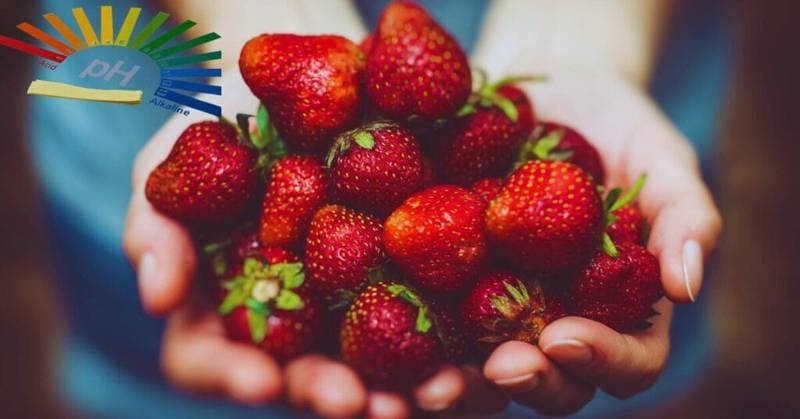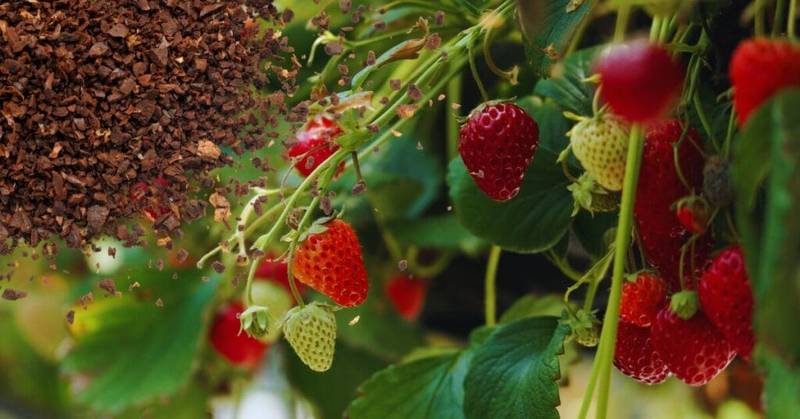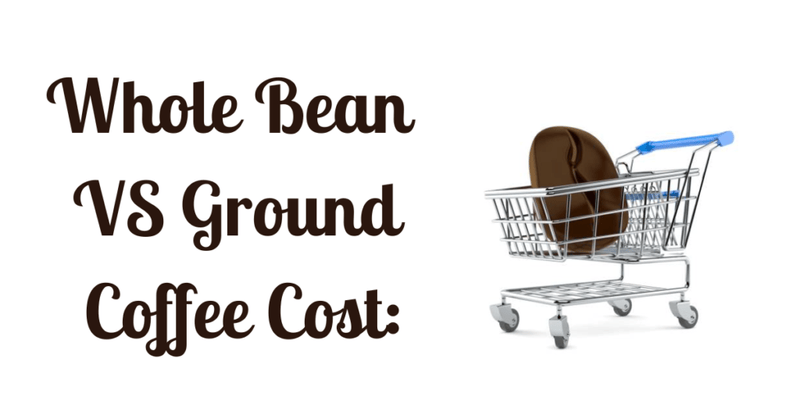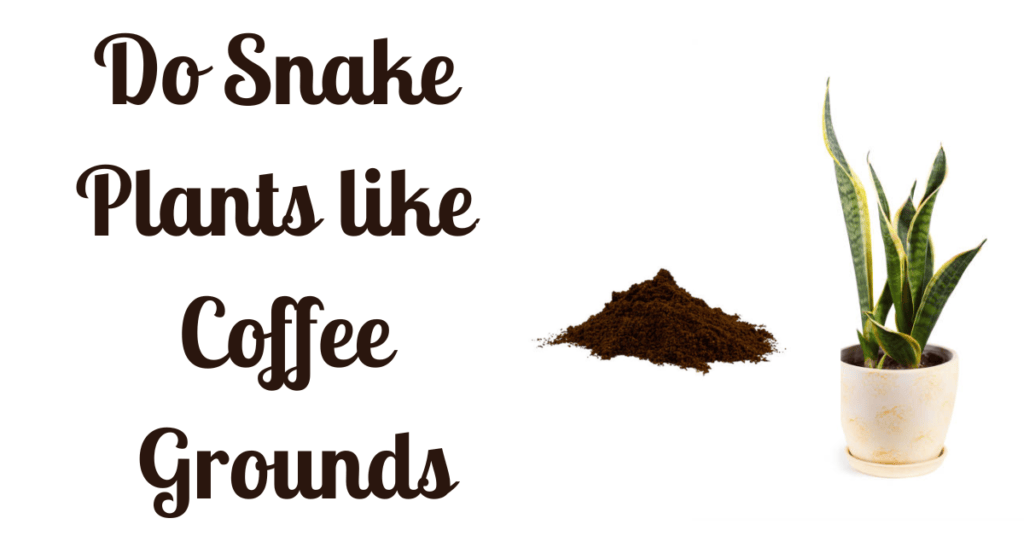Are Coffee Grounds Good For Strawberries? This intriguing question has sparked interest among gardening enthusiasts seeking sustainable and effective ways to enhance the growth of their strawberry plants.
Coffee grounds, a byproduct of our daily caffeine rituals, have gained attention for their potential benefits in the garden.
Are coffee grounds good for strawberries? As we delve into the relationship between coffee grounds and strawberries, it’s essential to explore the unique properties that make this organic material a potential ally for berry cultivation.
Are coffee grounds a secret weapon for strawberry gardens, or is it just a myth? This article will unravel the science behind using coffee grounds to nourish strawberry plants, providing insights into their nutrient composition and potential impact on soil health.
Additionally, we’ll touch upon an unexpected yet exciting application – utilizing coffee grounds as a natural body scrub, showcasing the versatile nature of this kitchen waste.
Let’s embark on a journey to discover whether coffee grounds can indeed contribute to the flourishing growth of strawberries while also exploring their surprising uses beyond the garden.
As an affiliate site, we are associated with the amazon. We might receive a commission when you use links or recommendations on our website to make qualified purchases. The cost you pay for the goods or services is unaffected by this.
Table of Contents
Are Coffee Grounds Good For Strawberries || 10 Facts

Are Coffee Grounds Good For Strawberries? Gardening enthusiasts often ponder this question as they seek eco-friendly and practical ways to nurture their strawberry plants.
In exploring the potential benefits, we delve into 10 detailed facts shedding light on the relationship between coffee grounds and strawberry cultivation.
1. Nutrient-Rich Boost
One of the primary advantages of using coffee grounds in strawberry beds is their nutrient-rich composition.
Coffee grounds are a source of nitrogen, an essential element promoting healthy leaf and stem development in strawberries.
2. Acidic Soil Enhancement
Strawberries thrive in slightly acidic soil conditions. Coffee grounds contribute acidity, creating an optimal pH level for strawberry plants and aiding in the absorption of vital nutrients.
3. Natural Pest Repellent
Coffee grounds act as a natural deterrent against pests like slugs and snails, offering protection to delicate strawberry fruits without the need for harmful chemicals.
4. Enhanced Water Retention
The organic matter in coffee grounds improves soil structure, promoting better water retention. This is particularly beneficial for strawberries, which require consistent moisture for optimal growth.
5. Slow Release of Nutrients
Unlike synthetic fertilizers, coffee grounds release nutrients gradually, providing a sustained source of nourishment for strawberry plants over an extended period.
6. Improved Soil Texture
Coffee grounds contribute to soil aeration and prevent compaction, creating an environment conducive to robust root development in strawberries.
7. Eco-Friendly Recycling
Repurposing coffee grounds in the garden serves as an eco-friendly solution, reducing waste while benefiting the soil and strawberry plants.
8. Cost-Effective Fertilizer
Utilizing coffee grounds as a fertilizer can be a cost-effective alternative to commercial options, offering economic benefits to home gardeners.
9. Versatile Application
Coffee grounds can be easily incorporated into various gardening practices, such as composting and mulching, providing flexibility in enhancing strawberry beds.
10. Sustainable Gardening Practice
Incorporating coffee grounds into strawberry cultivation aligns with sustainable gardening practices, showcasing the potential of everyday household waste in fostering plant health.
In conclusion, the question “Are Coffee Grounds Good For Strawberries?” is met with affirmative evidence, making coffee grounds a valuable and sustainable addition to the toolkit of strawberry enthusiasts.
Are Coffee Grounds Good For Strawberries || Pros and Cons

Are Coffee Grounds Good For Strawberries? This common query intrigues gardeners seeking eco-friendly alternatives for nurturing their strawberry plants.
In this exploration of the pros and cons, we’ll unravel the impact of using coffee grounds in strawberry cultivation, shedding light on both the benefits and potential drawbacks.
Pros
1. Nutrient-Rich Boost
Coffee grounds serve as an excellent source of nitrogen, promoting the healthy growth of strawberry plants and contributing to vibrant foliage.
2. Acidic Soil Enhancement
Strawberries thrive in slightly acidic soil, and coffee grounds can help create an optimal pH level, fostering an environment conducive to their development.
3. Natural Pest Repellent
The presence of coffee grounds acts as a deterrent for pests like slugs and snails, offering a chemical-free solution to protect delicate strawberry fruits.
4. Improved Water Retention
The organic matter in coffee grounds enhances soil structure, promoting better water retention—a crucial factor for the consistent moisture strawberries require.
5. Eco-Friendly Recycling
Repurposing coffee grounds in the garden provides an eco-friendly solution, reducing waste and offering a sustainable approach to strawberry cultivation.
Cons
1. Potential Over-Acidity
While acidity can be beneficial, excessive use of coffee grounds may lead to over-acidification of the soil, negatively affecting the growth of strawberries.
2. Mold Growth Risk
Coffee grounds, especially when applied in thick layers, can create a conducive environment for mold growth, posing a potential threat to strawberry plants.
3. Uneven Decomposition
Coffee grounds decompose slowly, and if not properly integrated into the soil, they may form a crust on the surface, impeding water penetration.
4. Nitrogen Imbalance
While coffee grounds provide nitrogen, an excess may disrupt the balance of nutrients, potentially causing issues like delayed fruiting or overly lush foliage.
5. Limitation in Quantity
Depending solely on coffee grounds may not fulfill all nutrient requirements, necessitating additional fertilization to meet the specific needs of strawberry plants.
Understanding the pros and cons of using coffee grounds for strawberries empowers gardeners to make informed decisions, balancing the benefits and potential challenges associated with this organic amendment.
Balancing Soil Ph ||The Impact of Coffee Grounds on Strawberry Beds

Are Coffee Grounds Good For Strawberries? Delving deeper into the realm of strawberry cultivation, let’s focus on the second heading: “Balancing Soil pH: The Impact of Coffee Grounds on Strawberry Beds.”
This aspect is crucial as strawberries thrive in slightly acidic soil, and understanding how coffee grounds contribute to pH regulation is key to successful cultivation.
Strawberry plants require an optimal pH range for nutrient absorption and overall health. Coffee grounds, being slightly acidic themselves, play a significant role in balancing the pH levels in the soil.
This natural acidity helps create an environment that is conducive to the growth and development of strawberries.
However, it’s important to strike the right balance. While some acidity is beneficial, excessive use of coffee grounds can potentially lead to over-acidification, negatively affecting the strawberries.
It’s essential to monitor and adjust the quantity of coffee grounds based on the initial pH levels of the soil and the specific needs of the strawberry varieties being cultivated.
By incorporating coffee grounds strategically, gardeners can harness their pH-regulating properties to create an ideal environment for strawberries, ensuring that the soil conditions are just right for these delicate and delicious fruits.
Understanding this aspect contributes to the overall knowledge of whether coffee grounds are indeed good for strawberries.
Soil Structure Matters || Coffee Grounds and Improved Texture for Strawberry Roots

Are Coffee Grounds Good For Strawberries? Exploring the intricate relationship between coffee grounds and strawberry cultivation unveils a fascinating aspect – the impact on soil structure and its influence on strawberry roots.
In this segment, “Soil Structure Matters: Coffee Grounds and Improved Texture for Strawberry Roots,” we delve into the role of coffee grounds in shaping the physical environment for optimal root development.
The texture of the soil is a critical factor in the success of strawberry plants, affecting their ability to access nutrients and water.
Coffee grounds, when incorporated into the soil, contribute to improved structure. They enhance aeration by preventing soil compaction and allowing the roots of strawberry plants to penetrate more easily.
The organic matter in coffee grounds promotes microbial activity, creating a healthy soil ecosystem that further benefits strawberry roots.
This improved texture not only aids in nutrient uptake but also facilitates better water drainage, preventing waterlogging, a condition that can be detrimental to strawberry plants.
Gardeners can leverage the soil-enhancing properties of coffee grounds to create an environment where strawberry roots can thrive.
By understanding how coffee grounds contribute to soil structure, one can harness this natural resource to foster robust root systems, ultimately supporting the overall health and productivity of strawberry plants.
It’s clear that when it comes to strawberries, the impact of coffee grounds extends beyond nutrients, influencing the very foundation upon which these delicious berries grow.
Versatile Applications || Creative Ways to Integrate Coffee Grounds in Strawberry Cultivation

Are Coffee Grounds Good For Strawberries? Beyond their conventional use as a nutrient source, exploring the versatile applications of coffee grounds in strawberry cultivation unveils a realm of creative possibilities.
In this discussion on “Versatile Applications: Creative Ways to Integrate Coffee Grounds in Strawberry Cultivation,” we’ll explore five innovative ways to maximize the benefits of coffee grounds in your strawberry garden.
1. Composting Companionship
Coffee grounds make an excellent addition to compost piles, enhancing the overall nutrient composition.
When incorporated into compost, they contribute organic matter, fostering a nutrient-rich environment that can be later utilized to nourish strawberry plants.
2. Mulching Magic
Utilizing coffee grounds as a mulch around strawberry plants serves multiple purposes. The grounds help regulate soil temperature, suppress weed growth, and retain moisture—all while slowly releasing nutrients.
This method showcases the versatility of coffee grounds as a practical and sustainable mulching material.
3. DIY Fertilizer Tea
Transforming coffee grounds into a nutrient-rich fertilizer tea offers a customizable and eco-friendly solution.
By steeping used coffee grounds in water, you can create a liquid fertilizer that can be applied directly to the soil around strawberry plants, providing a quick and accessible nutrient boost.
4. Soil Amendment Artistry
Mixing coffee grounds directly into the soil serves as a straightforward yet effective method of improving soil structure.
This application enhances aeration, promotes water retention, and introduces valuable organic matter, creating an environment conducive to the healthy growth of strawberry roots.
5. Repelling Pests Naturally
Beyond nutrition, coffee grounds can act as a natural deterrent for pests.
Spreading a layer of coffee grounds around strawberry plants creates a barrier that deters slugs and snails, offering protection to the delicate fruits without resorting to harmful chemicals.
The versatility of coffee grounds in strawberry cultivation extends far beyond a simple nutrient source.
By exploring these creative applications, gardeners can leverage coffee grounds in innovative ways, showcasing their adaptability and sustainability in fostering the optimal growth of strawberries.
Are coffee grounds good for strawberries? The answer becomes even more intriguing as we uncover the diverse roles they can play in the strawberry garden.
FAQs || Are Coffee Grounds Good For Strawberries
Can I put coffee grounds around strawberries?
Yes, you can put coffee grounds around strawberries to enhance soil acidity, improve texture, and provide essential nutrients.
What is the best thing to feed strawberry plants?
A balanced fertilizer with higher phosphorus content, such as a 10-10-10 formula, is ideal for feeding strawberry plants.
Which fruits like coffee grounds?
Blueberries, raspberries, and citrus fruits benefit from the acidity and nutrient content found in coffee grounds.
What plants are coffee grounds not good for?
Plants that prefer alkaline soil, like some vegetables and herbs, may be adversely affected by the acidity of coffee grounds.
Conclusion
In conclusion, the exploration of whether Are Coffee Grounds Good For Strawberries reveals a multifaceted relationship that extends beyond mere nutrition.
The organic richness of regular coffee grounds proves instrumental in enhancing soil structure, regulating pH levels, and serving as a versatile resource in strawberry cultivation.
As gardeners embrace these insights, the manifold benefits of regular coffee grounds, from fostering robust root systems to repelling pests naturally, become clear.
By creatively integrating regular coffee grounds into various gardening practices, enthusiasts can embark on a sustainable journey that not only nurtures strawberries but also underscores the adaptability and eco-friendly nature of this household waste in the garden.








Your article helped me a lot, is there any more related content? Thanks!
Thank you for your sharing. I am worried that I lack creative ideas. It is your article that makes me full of hope. Thank you. But, I have a question, can you help me?